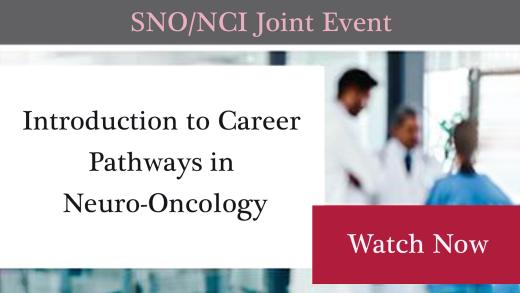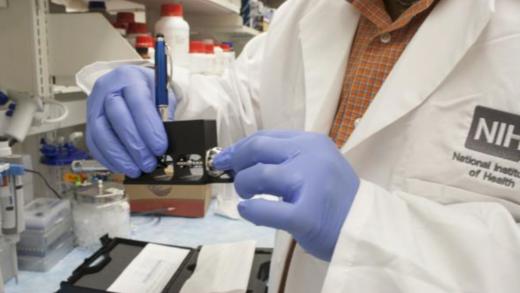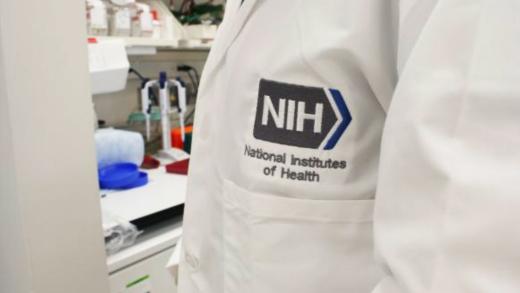Neuro-Oncology Fellowship
Training the next generation of physician-scientists for careers in neuro-oncology
Neuro-Oncology Fellowship
About
The Neuro-Oncology Fellowship is a joint program between the NCI Center for Cancer Research's Neuro-Oncology Branch (NOB) at the NIH campus in Bethesda, Maryland, and Johns Hopkins University in Baltimore, Maryland. The goal of the fellowship is to prepare neurologists and medical oncologists for research careers in neuro-oncology.
NOB Assistant Research Physician Byram Ozer, M.D., Ph.D., co-directs the fellowship program with Matthias Holdhoff, M.D., Ph.D., from Johns Hopkins University. They are joined by Mark Gilbert, M.D., NOB chief, Terri Armstrong, Ph.D., as well as Jaishri Blakely, M.D., John Laterra, M.D., Ph.D., and Stuart Grossman, M.D., from Johns Hopkins University.
The fellowship involves one year of clinical training and two years of research training in clinical, translational, or laboratory basic research. In their first year, fellows focus on gaining clinical skills in managing central nervous system (CNS) tumors at Johns Hopkins University, as well as their prerequisite training for the United Council for Neurologic Subspecialties (UCNS) certification exam. During this time, they also participate in clinical and research rotations with NOB providers at NCI. Fellows then identify a primary mentor and research project at the end of their first year. They spend their second and third years primarily dedicated to this project, while continuing to enjoy access to both the NIH and Johns Hopkins University campuses.
Expectations for fellows include:
- Assisting in the care and management of more than 2,000 brain and spine tumor patient visits seen each year in the NOB’s Neuro-Oncology Clinic and NCI-CONNECT Clinic
- Participating in formal rotations with neurosurgeons, medical and pediatric oncologists, neurologists, radiation oncologists, and neuropathologists
- Learning how to combine clinical standards with cutting edge research and apply this to scientific presentations, journal clubs, tumor boards, and clinical rounds
- Attending academic conferences and career development activities
- Developing and implementing clinical trials for adult patients
- Gaining valuable experience in data analysis, manuscript preparation, and submission for journal publication
All candidates must be physicians who are either board-certified or board-eligible in their required respective specialties. They must also hold (or be able to hold) an unrestricted license to practice medicine in the United States. See the Graduate Medical Education: Neuro-Oncology website to apply.
How to Apply
Candidates should visit the Graduate Medical Education: Neuro-Oncology website to submit an application.
For further questions, email NCINeuroOncology@mail.nih.gov.


